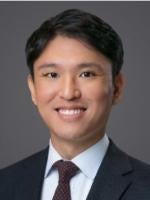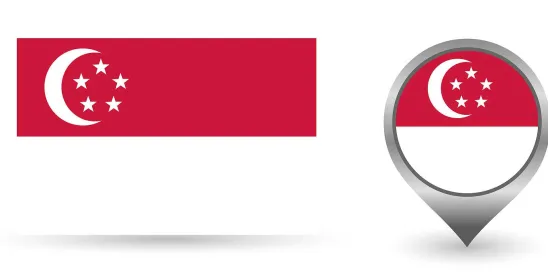Singapore recently made three new changes in employment practices that stand to impose higher standards on employers. These three major legislative updates may have implications for employer handbooks and policies. On January 1, 2024, the government of Singapore introduced laws that increased paid paternity leave and unpaid infant care leave. The third and, perhaps, most significant update is the introduction of new Workplace Fairness Legislation (WFL), which is slated for passage in the second half of 2024.
Quick Hits
- New Singaporean employment laws are in effect or will take effect this year.
- A new law extends the paid paternity leave benefit for two additional weeks, bringing the new leave allotment to four weeks of paid paternity leave.
- Singapore’s proposed Workplace Fairness Legislation, scheduled for passage in the second half of 2024, aims to enhance protection against discrimination and provide an avenue for employees to report grievances without fear of retaliation.
Paid Paternity Leave
Currently in Singapore, fathers of newborn Singapore citizens are entitled to two weeks of paid paternity leave. The new law extends that benefit for two additional weeks, bringing the new leave allotment up to a total of four weeks of paid paternity leave.Employers are not required to provide the two additional weeks, but will be reimbursed by the government when they voluntarily choose to grant the option to employees.
The additional two-week benefit is expected to become mandatory in the future.
Unpaid Infant Care Leave
On January 1, 2024, unpaid infant care leave doubled from six to twelve days per year for each parent. Employees are eligible for the benefit after working for their employers for three continuous months. In addition, to be eligible for the leave, the employees’ children must be Singapore citizens under the age of two.
Workplace Fairness Legislation
The proposed WFL aims to enhance protection against discrimination and provide an avenue for employees to report grievances without fear of retaliation. The new law is designed to complement, not replace, the existing Tripartite Guidelines on Fair Employment Practices. All employers in Singapore are expected to adhere to these guidelines that seek to establish best practices in terms of antidiscrimination measures and fair employment practices with respect to all stages of employment from hiring to termination.
The WFL would only apply to employees and prospective employees. Small firms with fewer than twenty-five workers would be exempt from WFL requirements, with the position to be reviewed in five years.
Protections Against Workplace Discrimination
The WFL will prohibit direct discrimination, defined as “making an adverse employment decision” based on the following recommended protected characteristics: age, nationality, sex, marital status, pregnancy status, caregiving responsibilities, race, religion, language, and disability and mental health conditions.
Most of these characteristics are already protected under the Tripartite Guidelines on Fair Employment Practices. The new law clearly goes further, however, defining “discrimination” and outlining who is protected from it.
Processes for Resolving Grievances
The WFL would require employers to put in place grievance handling processes to resolve disputes internally in the first instance. The process must include the following measures:
- Inform employees of the grievance handling process;
- Conduct inquiries as needed and document the process;
- Communicate the outcome to the aggrieved employee;
- Protect the confidentiality of the identity of persons who report workplace discrimination or harassment; and
- Prohibit retaliation against those who report cases of workplace discrimination or harassment.
Employee Responsibilities
Employees must provide prima facie evidence to support a claim that discrimination has, in fact, occurred. Employees should clearly cite the incidents that led to the belief that they suffered an adverse employment outcome.In addition, the cited incidents should show how the consideration of the protected characteristic led to the adverse employment outcome. The intended effect of these requirements is, ostensibly, to prevent frivolous claims.
Compulsory Mediation
If a complaint cannot be resolved at the company level, employees may turn to other options. Under the new law, claims of workplace discrimination must first undergo compulsory mediation at the Tripartite Alliance for Dispute Management, with adjudication at the Employment Claims Tribunal as a last resort.
Exception to Fair Recruitment Practices
While the WFL is intended to cover all stages of employment from recruiting, promotion, and performance evaluation through dismissal, it recognizes that most discrimination violations occur during the recruiting process. Therefore, the WFL would prohibit employers from using words or phrases that refer to a protected characteristic or indicate a preference for a protected characteristic in job advertisements. This prohibition does not apply, however, if the protected characteristics form genuine and reasonable occupational requirements. For example, in a job advertisement for language teachers, who should be proficient in the language they are teaching, the employer may state language proficiency as a job requirement in advertisements. As such, this regulation mirrors discrimination policies in other countries (e.g., the bona fide occupational qualification rule in the United States).
Key Takeaways
Employers in Singapore may need to start preparing now for when these new laws take effect. With regard to the WFL, Singapore has codified many of the discrimination laws that already exist in other countries in its Tripartite Guidelines, and now, in its new proposed legislation. As an international hub, the Singapore government will be playing catch-up with the passage of its first piece of legislation concerning workplace fairness. Impacted employers may need to consider whether their employment handbooks and policies also need to catch up to Singapore’s new fair employment practices.





 />i
/>i
